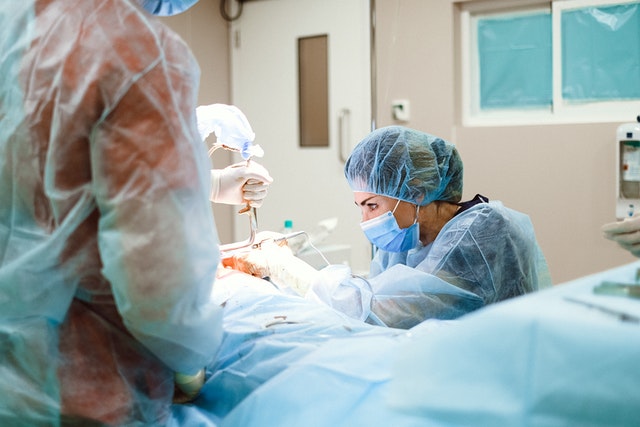
MCL tears and injuries occur frequently in contact sports, such as football, hockey, and soccer. This guide will provide an overview of MCL tears and their symptoms, treatment options, and the likelihood of surgical repair. If you are suffering from an MCL tear or other knee injury, it is important to speak with a physician to determine the best course of action for you. Thank you for reading.
How do MCL tears happen?
MCL tears happen when the MCL is stretched beyond its normal range of motion or suddenly forced into an unnatural position. This can happen due to a direct blow to the MCL, such as from a fall or tackle, or from a twisting motion that puts stress on the MCL. MCL tears can also occur gradually over time from repetitive stress on the knee joint.
Are MCL injuries permanent?
MCL injuries are not permanent, but they can take a long time to heal. The MCL is a strong ligament that stabilizes the knee joint, and when it is injured, it can cause pain, swelling, and instability in the knee. MCL injuries can range from mild to severe, and depending on the severity of the injury, recovery times can vary from a few weeks to several months.
MCL injuries typically require rest, ice, and other conservative treatments before healing can occur. In some cases, surgery may be necessary to repair a torn MCL. However, with proper treatment and care, most people are able to recover from an MCL injury and regain full function in their knees.
When is MCL surgery needed?
MCL surgery is typically only needed when the ligament is completely torn. This can happen as the result of a traumatic injury, such as a fall or direct hit to the knee. If the MCL is only partially torn, it may be possible to treat the injury without surgery. However, in some cases, partial tears can lead to complete tears if they are not treated properly. MCL surgery is also sometimes needed to repair other damage to the knee, such as damage to the meniscus (a shock-absorbing cushion in the knee) caused by an MCL tear.
Can an MCL tear heal on its own?
Yes, an MCL tear can heal on its own. However, it is important to rest the joint and avoid activities that put stress on the MCL. Physical therapy may also be recommended to help strengthen the joint and support healing. In some cases, surgery may be necessary to repair a torn MCL.
How to heal MCL injuries without surgery?
There are several methods that can be used to heal MCL injuries without surgery. Rest, ice, compression, and elevation (RICE) is a common treatment method for MCL injuries. This involves resting the injured area, applying ice to reduce swelling, wearing a compression bandage to support the joint, and elevating the injury above heart level to reduce swelling.
Physical therapy exercises may also be prescribed to help stretch and strengthen the muscles around the knee joint. In some cases, a brace may be recommended to provide additional support. Surgery is typically only recommended for severe MCL injuries that do not respond to nonsurgical treatments.
If you have suffered an MCL injury, it is important to seek medical attention as soon as possible. Early diagnosis and treatment can help improve the chances of a successful recovery without the need for surgery.
What are the Best MCL surgery treatments?
There are a few different ways that surgeons can approach MCL surgery, and the best treatment for each patient may vary depending on the individual case. Some of the most common MCL surgery treatments include:
Arthroscopic debridement
This is a minimally invasive surgical procedure that involves cleaning out the damaged tissue from inside the joint.
Lateral release
This procedure involves cutting the ligament that runs along the outside of the knee joint in order to release tension and allow for more movement.
Anterior cruciate ligament (ACL) reconstruction
In some cases, MCL surgery may also involve reconstructing the ACL. This is a more extensive surgery that is typically only reserved for cases where the MCL damage is severe.
Your surgeon will be able to advise you on the best treatment option for your specific case.
What questions should I ask my doctor about MCL injuries?
- What is the severity of my MCL injury?
- What are the potential complications of an MCL injury?
- How long will it take for my MCL injury to heal?
- What is the risk of re-injury after an MCL injury?
- Are there any lifestyle changes I need to make to prevent further MCL injuries?
- What are the long-term effects of an MCL injury?
- Are there any alternative treatments for MCL injuries?
- What is the prognosis for MCL injuries?
- What research is being done on MCL injuries?
How can a telemedicine consult help me with my MCL injury?
A telemedicine consult can help you with your MCL injury by providing you with access to an orthopedic doctor who can assess your injury and provide guidance on treatment. Telemedicine can also help you connect with other patients who have similar injuries, and who can provide support and advice. Finally, telemedicine can help you stay connected with your doctor after you have been discharged from the hospital, which can help ensure that you receive timely follow-up care.
Conclusion
For a comprehensive review of your MCL injury book an online appointment with an Orthopaedic specialist on how to get a personalized assessment about the type of treatment that is right for you with an expert second opinion and evidence-based guidance on gold-standard treatment that is suitable for your case.
Click on the doctor profiles below to book a priority-basis telemedicine consult:
BLOG AUTHOR
Dr. Ismail Sayeed
Dr. Sayeed is the Medical Director of ViOS, Inc. He is a deeply committed physician entrepreneur & medical blog writer. While building the global infrastructure of the VIOS Clinic, he is dedicated to educate people on the potential of specialist telemedicine for managing chronic diseases.
Read more about him in his author bio




